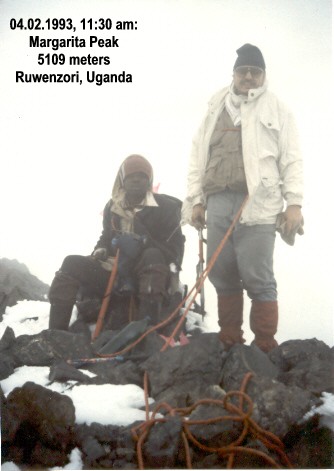Liebe Blogleser,
normalerweise schreibe ich hier nur über EZ-Themen. Aber als jemand, der in Saudi-Arabien, Somaliland und Ägypten gelebt und gearbeitet hat, ebenso wie in Ländern mit hohem Anteil an Muslimen wie Nigeria, bin ich dem Thema Islam sehr verbunden. Daher habe ich mich entschlossen, den folgenden nicht-EZ-Artikel hier zu bringen. Es ist ein ausgezeichneter Artikel, zudem von einem Autor, der selbst einmal Muslim war:
Ibn Warraq wurde 1946 im indischen Rajkot als Muslim geboren, wandte sich später aber vom Islam ab. Er studierte an der Universität Edinburgh beim Orientalisten William Montgomery Watt. Angesichts der schwachen Reaktionen westlicher Intellektueller auf die Todes-Fatwa gegen den Schriftsteller Salman Rushdie begann Warraq 1993 sein Buch „Warum ich kein Muslim bin“ (auf Deutsch bei Matthes & Seitz, Berlin, 2004).
Als es 1995 erschien, war er Professor für britische und amerikanische Kultur in Toulouse. Aus Sicherheitsgründen legte er sich das Pseudonym Ibn Warraq zu. Er gehört zu den Autoren des „Manifestes der 12“ gegen den Islamismus als „neue totalitäre Bedrohung“ von 2006, das u.a. Ayaan Hirsi Ali, Bernard-Henri Lévy, Irshad Manji, Taslima Nasreen und Salman Rushdie unterzeichneten.
Mir geht es vor allem darum, gegen den gefährlichen Multikulturismus unserer sog. Intellektuellen anzukämpfen, den/die ich für sehr dumm halte.
„Es ist jetzt 17 Jahre her, seit ich das erste Mal darüber geschrieben habe, was es bedeutet, wenn man sich auf die Forderungen von Muslimen einlässt, die im Westen leben; inzwischen ist offensichtlich, dass viele nicht vorhaben, sich an die sie empfangende Gesellschaft zu assimilieren. Stattdessen beharren sie darauf, dass sich das Gastland anpassen muss, indem es ihnen Sonderrechte und Privilegien gewährt.
Wenn wir nicht wachsamer sind, ist es wahrscheinlich, dass die europäische Gesellschaft stark verarmt, und all die hart erkämpften Errungenschaften und Freiheiten, soziale wie politische, in einer Orgie multikulturellen Liberalismus' verschleudert werden. Es könnte sogar die Gefahr bestehen, dass sich die europäischen Gesellschaften in religiöse und kulturelle Gettos aufspalten, jedes mit seinen eigenen Gesetzen. Zwei Dinge sollten wir dabei sorgfältig im Auge behalten: die Scharia und die Meinungsfreiheit.
Im Februar 2008 stellte der Erzbischof von Canterbury, Rowan Williams, zustimmend fest, dass „die Anwendung der Scharia unter bestimmten Umständen“ in Großbritannien „unvermeidbar“ sei. In mehreren Interviews ließ er keinen Zweifel daran, dass er die Vorstellung „ein Recht für alle“ gefährlich fand – ein Eckpfeiler der westlichen Zivilisation, Gleichheit vor dem Gesetz: eine Gefahr!
Im Juli 2008 sah der Oberste Richter von England und Wales, Lord Phillips, keinen Hinderungsgrund, in Streitfällen die Scharia als Grundlage einer Vermittlung einzusetzen.
In Großbritannien arbeiten heute bereits 85 Scharia-Gerichte, sie wenden islamisches Recht an, um häusliche, familiäre und geschäftliche Streitfälle zu lösen; viele dieser Gerichte sind in Moscheen angesiedelt. Dabei bedroht die pure Existenz der Scharia-Gerichte die Rechte und Freiheiten von Individuen und die Vorstellung von einem Rechtssystem, das auf Gesetzen beruht, die von gewählten Volksvertretern beschlossen wurden." ...
>> zum gesamten Artikel auf WELT-Online



